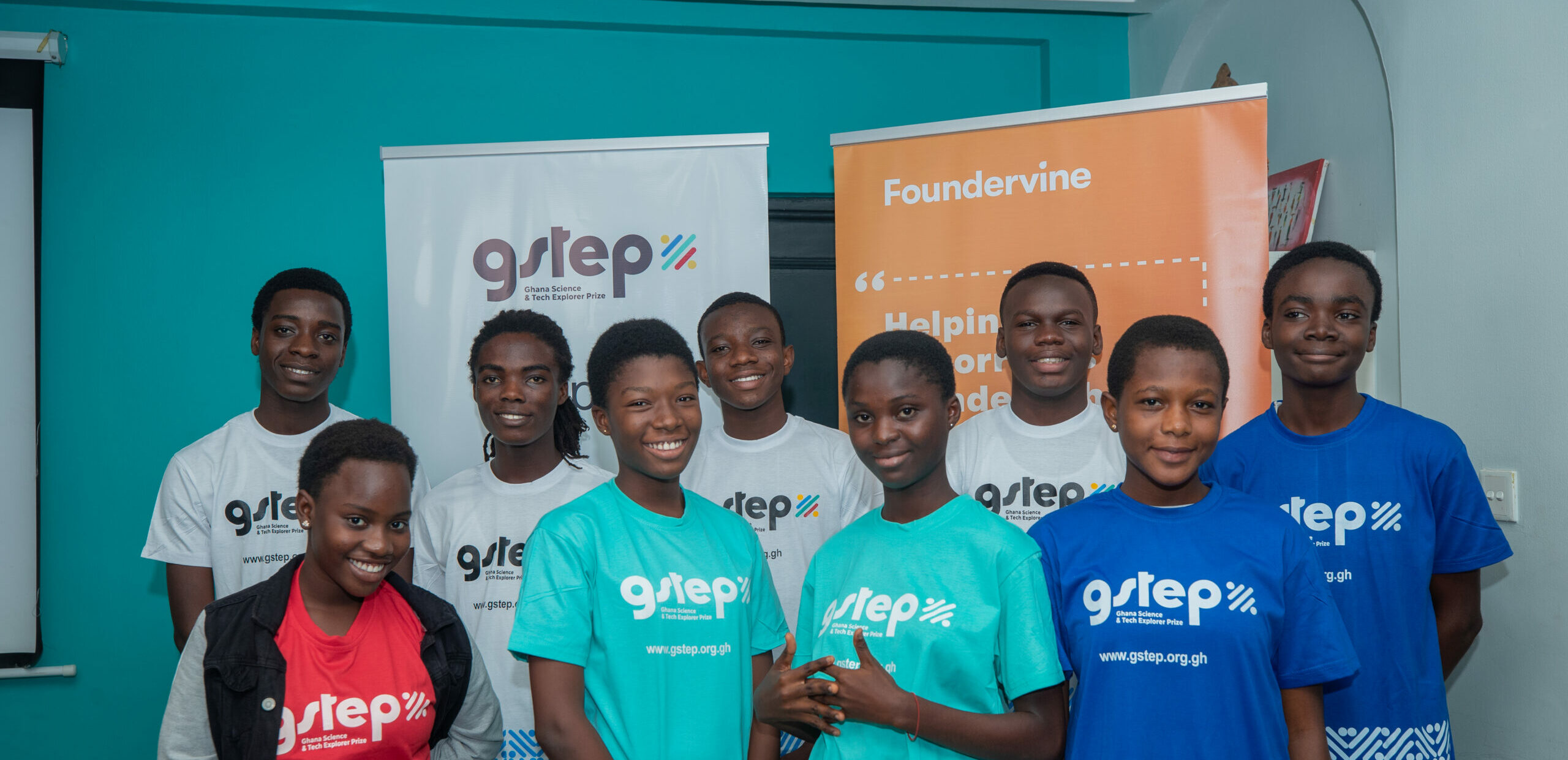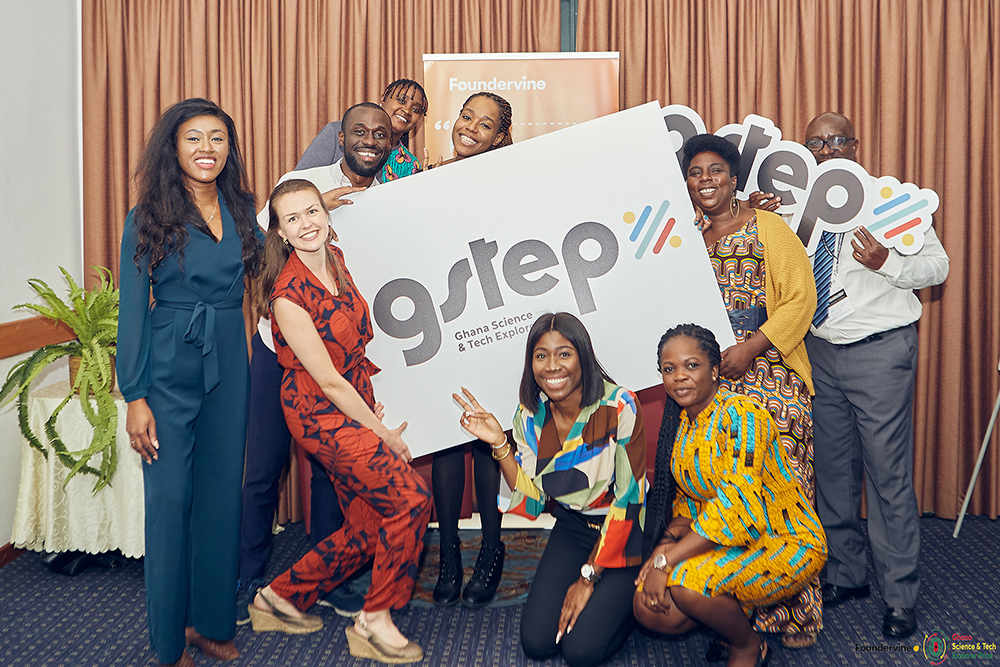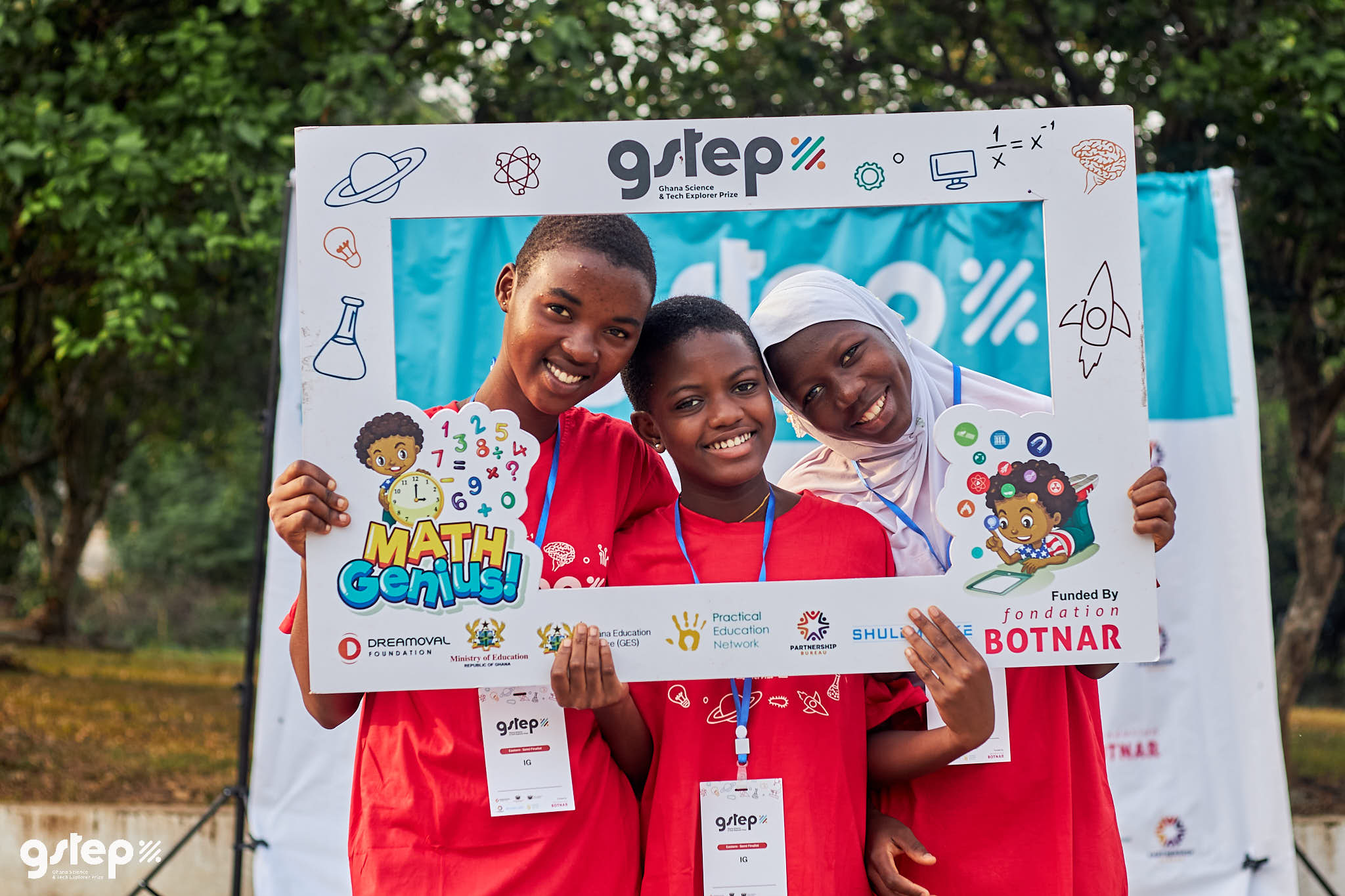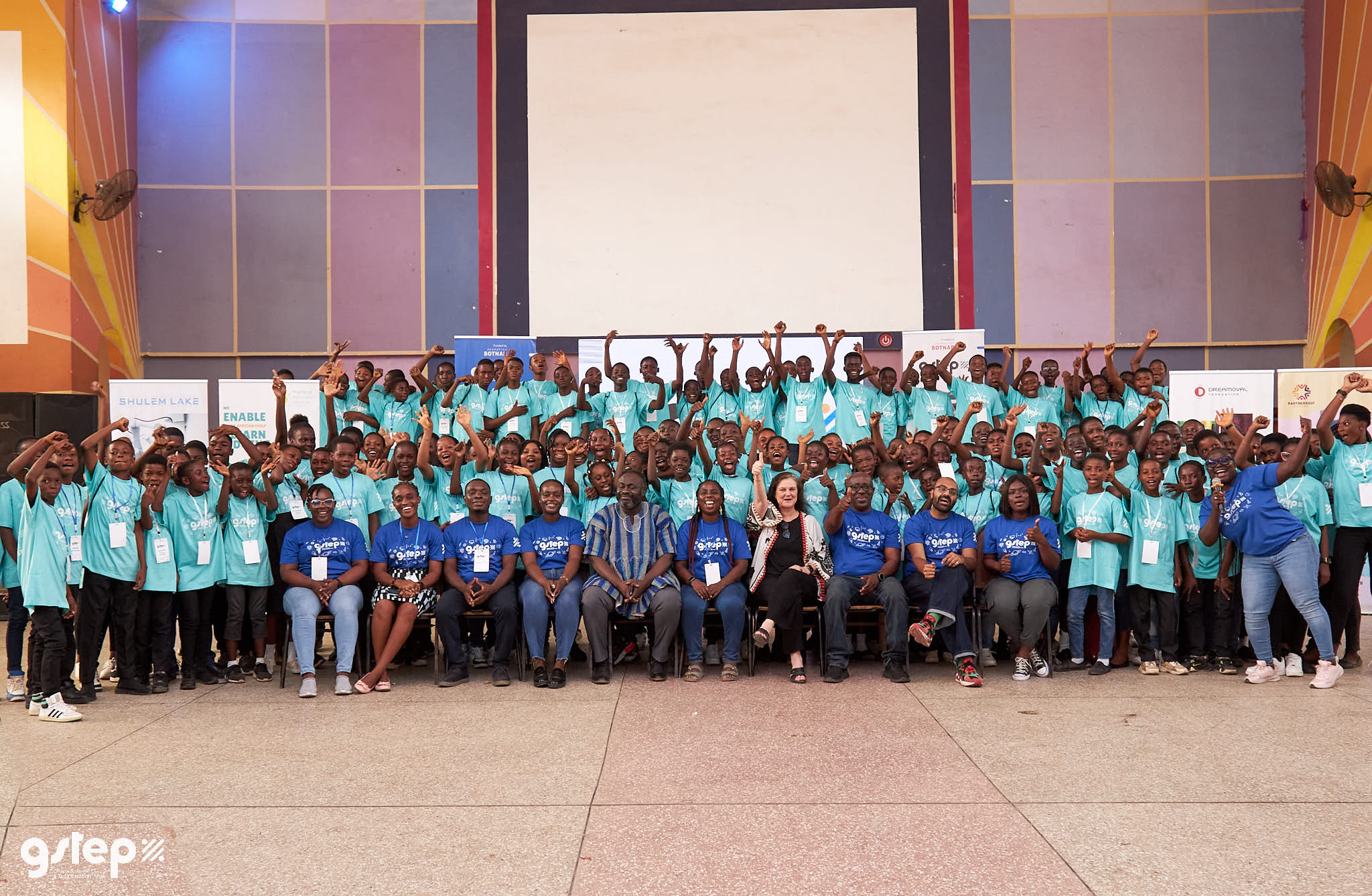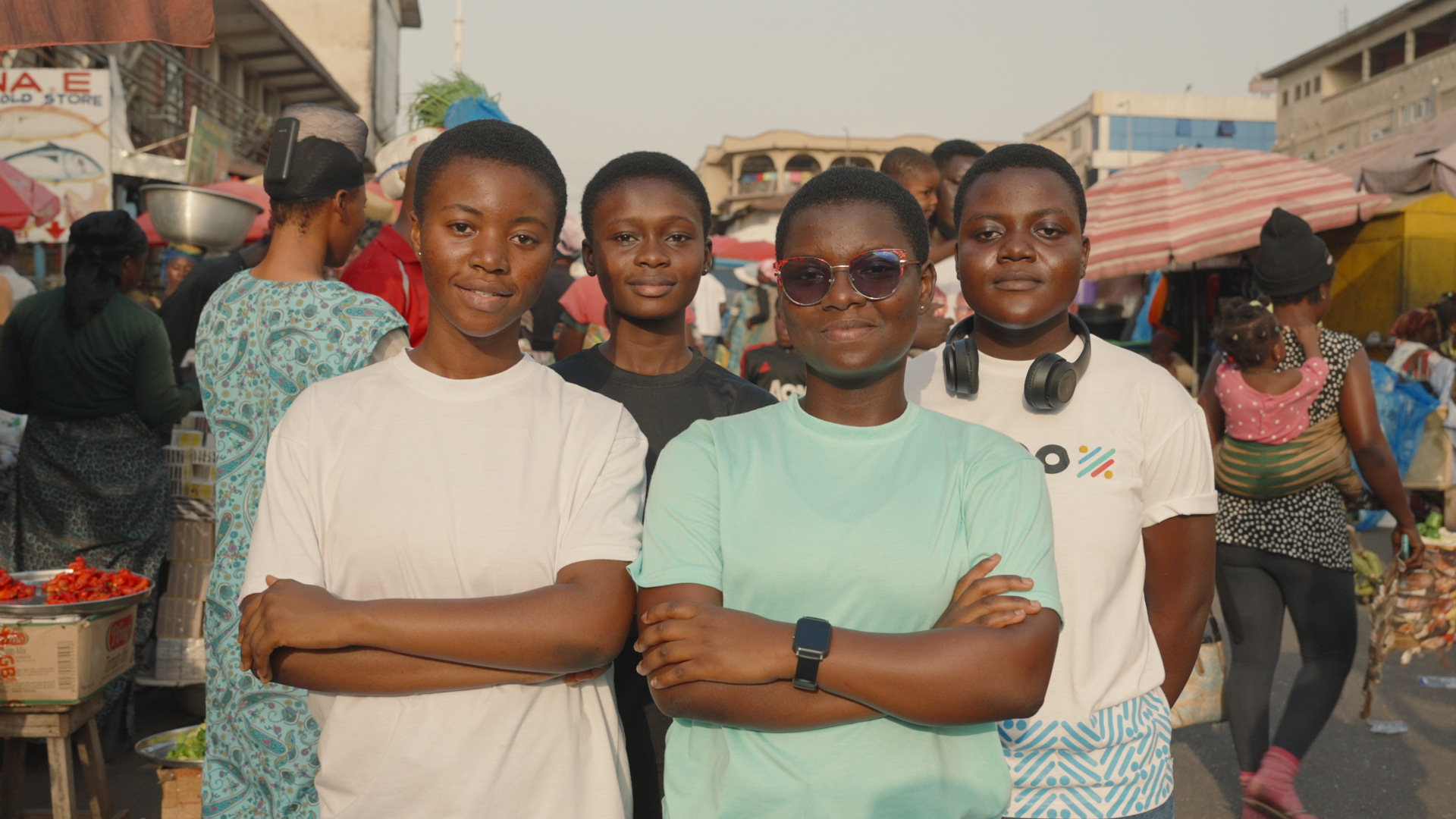The fields of Science, Technology, Engineering, and Mathematics (STEM) are today’s cornerstones of global innovation and development and have produced many brilliant ideas that have benefited humanity. The GSTEP initiative has given an opportunity to the young generation to explore their creativity and innovativeness using STEM while solving key issues that address communities and society at large.
Oparebea was a 14-year-old junior high school student at the Obuasi Junior High School Complex, who perished in a gas explosion caused by a residential gas leak at her grandparent’s home in Obuasi. She served as an inspiration for some students in her school to participate in the GSTEP challenge for basic schools in the Greater Accra and Ashanti Regions this year. In response to the demise of their friend, the students of Obuasi JHS Complex developed a plan to construct an LPG leakage detector with the help of their teachers.
The team members representing Obuasi Junior High School Complex in the competition are Master Aidoo Owusu Daniel, 12, Miss Abigail Awuah, 13, Miss Eva Dwira Blessing, 13, and Master Asamoah Sam Robert, 13, together with Mr. Matthew Amoh, a teacher and team supervisor.
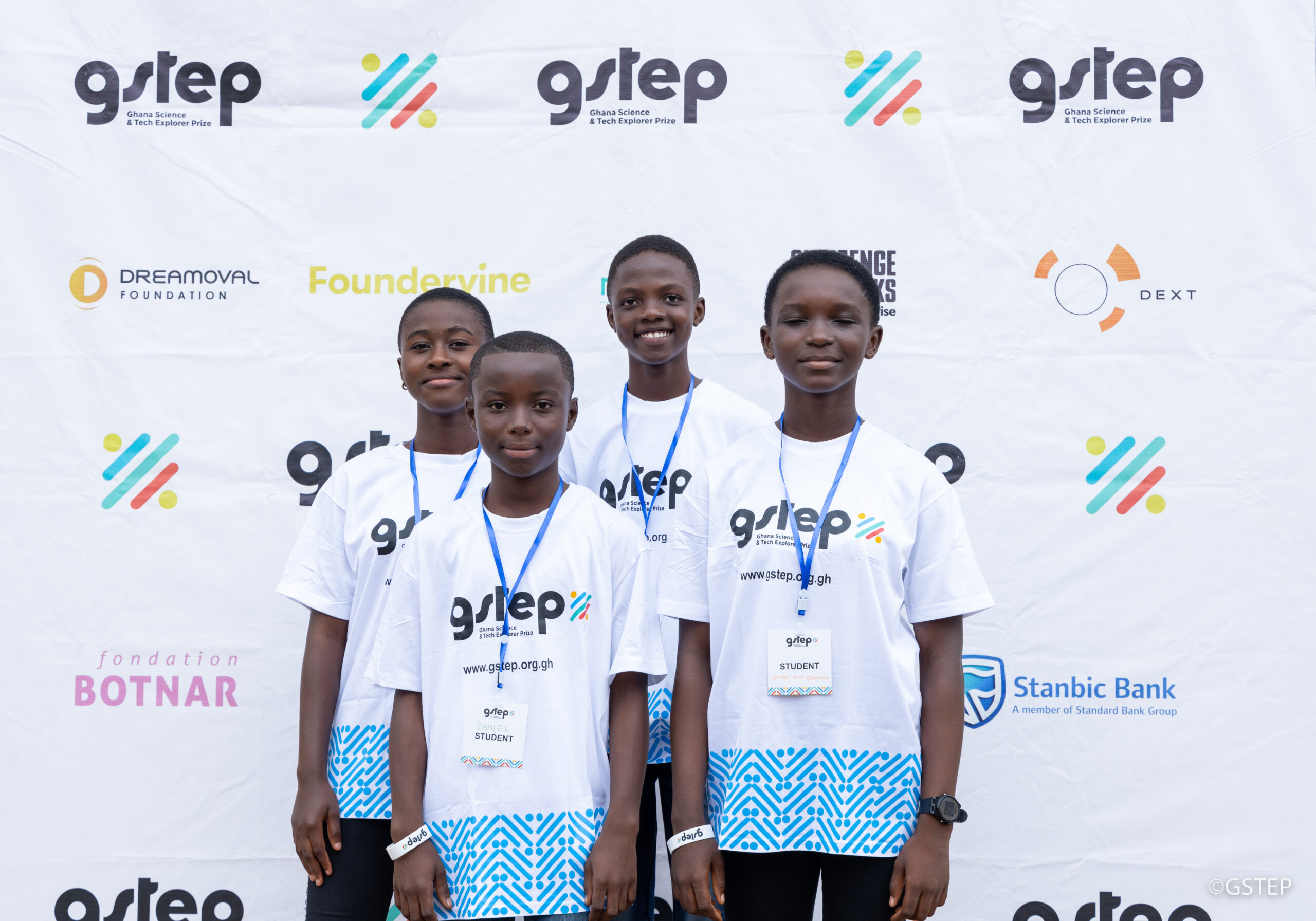
The Oparebea Project, also known as the LPG Detector Project, aims to identify gas leaks in kitchens caused by malfunctioning gas regulators, cylinders, and negligence and alert adjacent residents to avert explosions and also to avoid what occurred to Oparebea. The device is simple to operate and can be installed in kitchens, other rooms, or areas where LPG is used. The device specifications are tuned to identify any gas leakage up to a volume of 5 cubic centimeters. Once the leakage exceeds that, it will sound an alarm and blink a red warning light to warn individuals nearby of a leak. Additionally, if the device’s owner is not nearby, an SMS would be sent to him or her about the leakage. The team is presently aiming to incorporate a GPS Locator into the apparatus. In addition to notifying the owner when there is a gas leak, the Ghana National Fire Service will also receive notification along with precise position data.
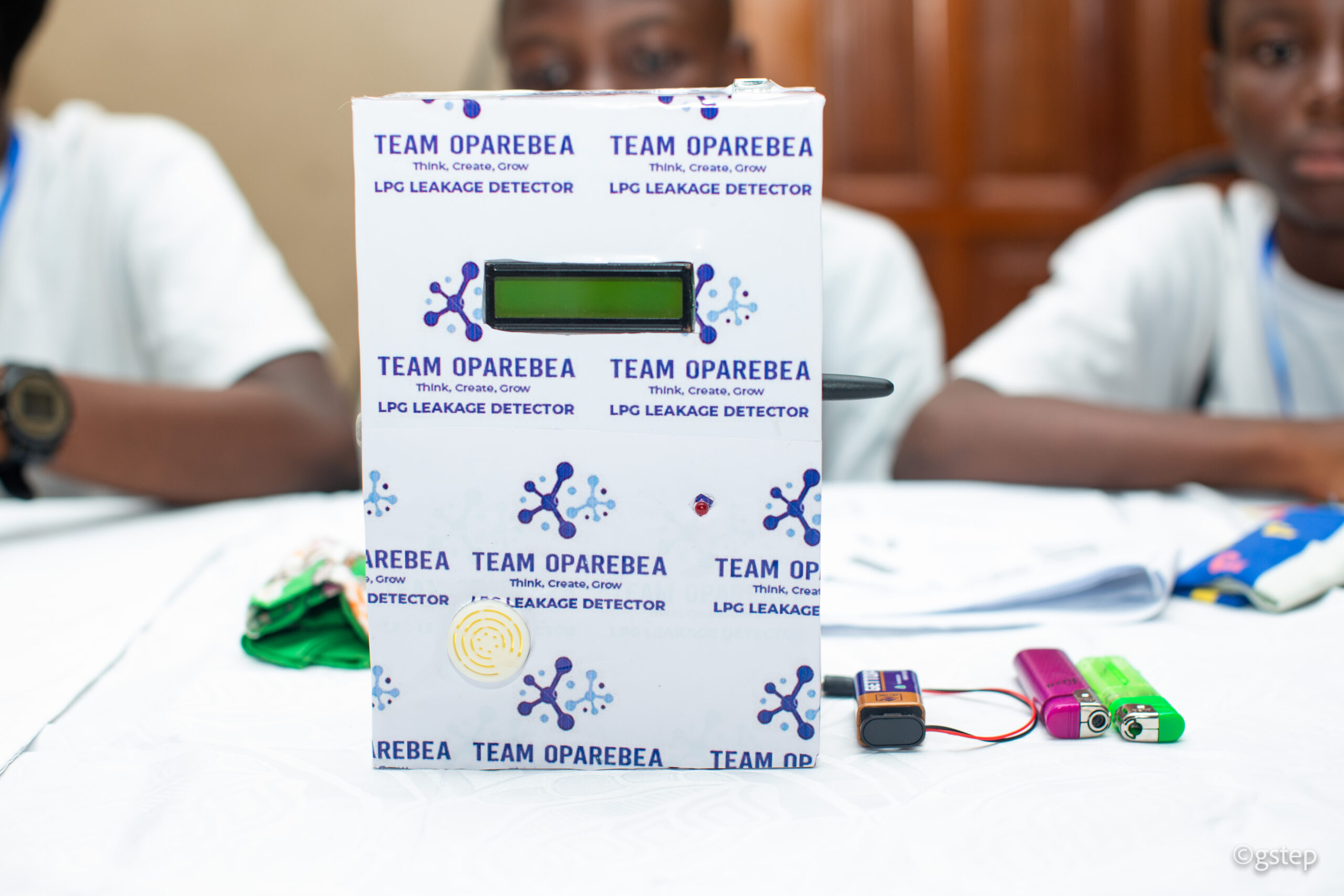
The MQ5 Gas Detector for detecting gas, an Arduino Circuit Board, an LCD board to show how much gas has spilled into the atmosphere, a Bread Board for assembling the components together, a Buzzer to sound the alarm, a SIM 900L Module to send messages, a GPS locator, and Jumper Cables for connection make up the gas detector device.
The team identified three steps in the construction of the device. The first step was to purchase the various components to attach to the Bread Board. The components were assembled on the Bread Board and into a case in the final stage, which involved coding instructions for them to follow. The case was intended to be molded, however, due to a shortage of supplies, plywood and a plastic acrylic board were substituted. The project implemented the STEM disciplines of Technology (understanding how to use the different components), Engineering (setting up the components), and Mathematics (creating codes for the components) into practice.
After the assembly stage, the team proceeded to the testing stage, where the effectiveness of the device was evaluated using a blow lamp torch, devoid of the burner which ignites the flame. This was done to allow the free flow of gas from the torch without fire. The system was tested again with excess gas from filling gas cylinders at an LPG filling station, where it performed flawlessly.
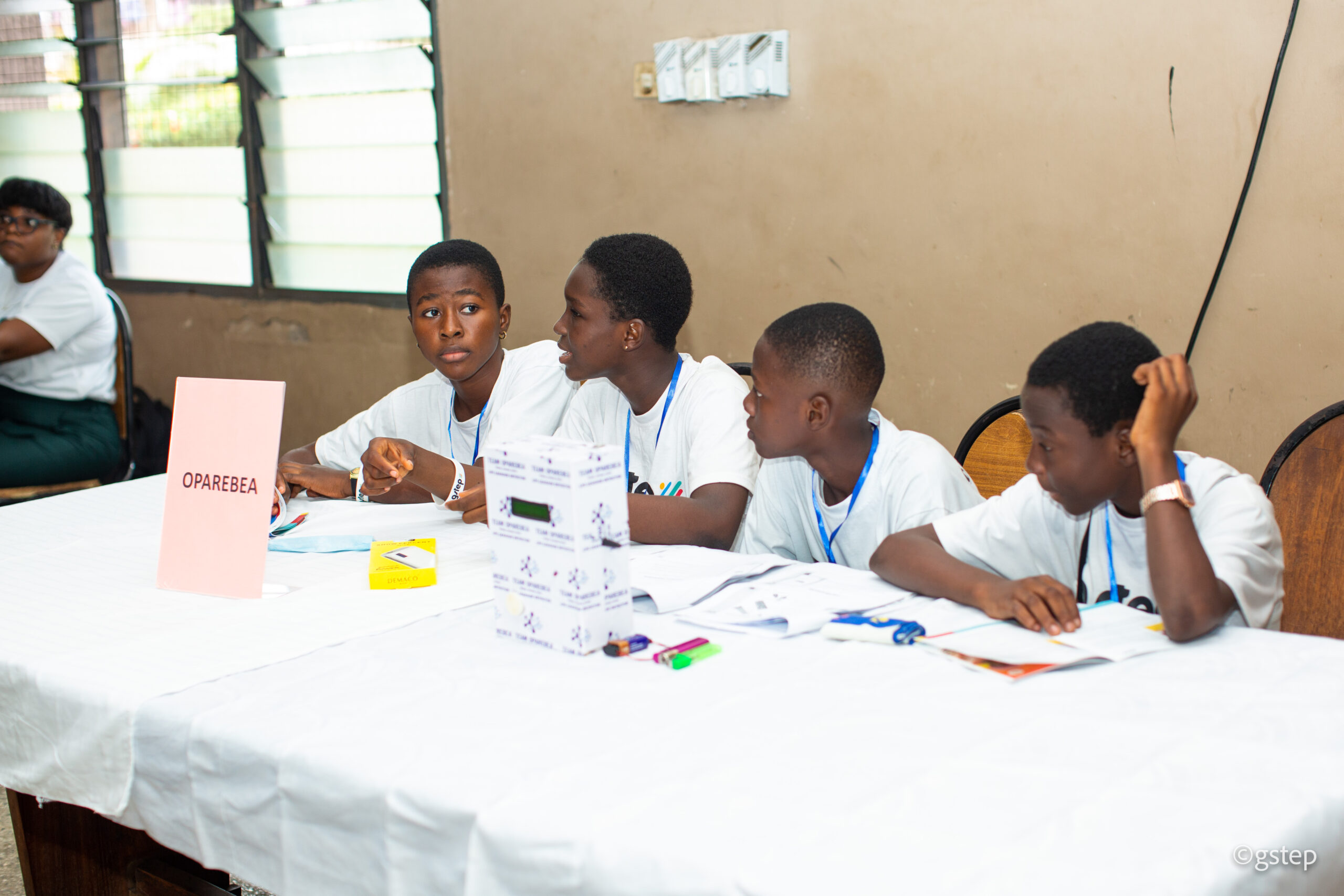
The project’s main objective is to prevent the loss of lives and properties to gas explosions. More than 38% of Ghanaians are affected by gas leakage accidents, according to a publicly conducted survey. When the initiative is completed, it will primarily focus on preserving the lives of minors who cook with LPG because they are unable to detect gas leaks better than adults. Since the project’s concept is “Living happier together,” there will not be any loss of lives or property through gas leakage, which will be a benefit to the community.
As a result of what occurred to Oparebea, the headmaster, Mr. Aaron Boafo, took a keen interest in the idea. For the competition’s final exhibition in Accra, the team plans to construct two or three additional gas detector gadgets with slightly different functionalities with his help.
To avoid a repeat of Oparebea’s catastrophe, the team is currently concentrating on developing the device for household use. In the future, its plan is to collaborate with institutions like the Ghana Standards Authority to patent the device, seek sponsorship, add new functions, and commercialise it. The prototype gas detector is now being developed with applications in homes, schools, and restaurants in mind.

